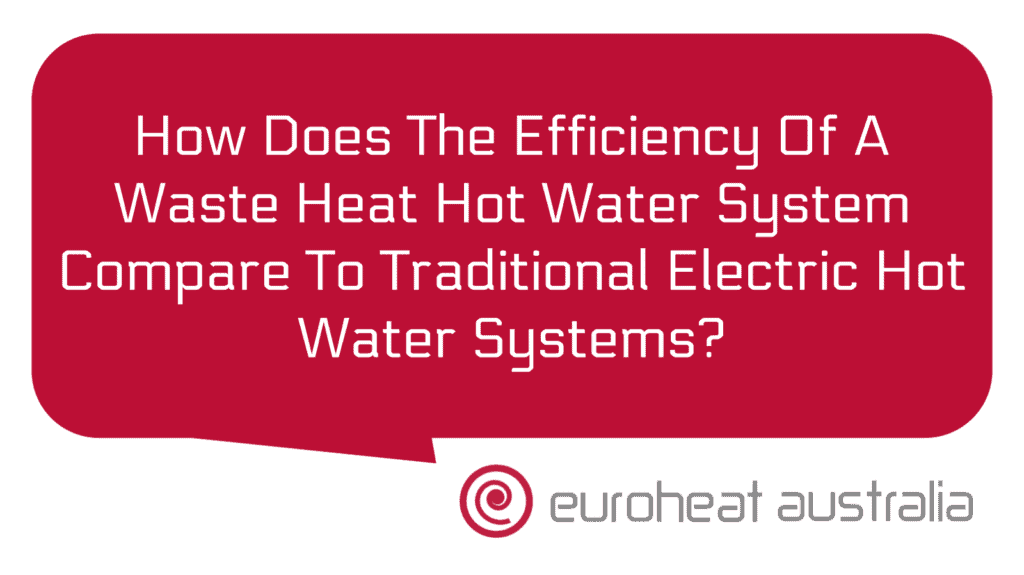When you’re looking at how to best heat your hot water, it pays to look at the efficiency of waste heat hot water systems compared to traditional electric hot water systems.
Waste heat hot water systems work by harnessing the energy that’s already present in your environment, such as solar energy and other sources of ambient heat. This is used to preheat the water in your hot water tank before it is heated again by an electric element, providing a more efficient use of energy. This means that you can get more out of the same amount of energy, saving you money on your bills and reducing your carbon footprint.
The efficiency of a waste heat hot water system compared to traditional electric hot water systems is significant. A well-designed and installed system can provide up to a 30% reduction in energy consumption when compared with a traditional electric system. That equates to an average savings of up to $200 per year depending on usage and location.
When looking at installing a waste heat hot water system, there are many benefits beyond just energy savings. One such benefit is the ability for these systems to incorporate ‘heat and chill recovery’, which provides further efficiency gains. Heat and chill recovery works by taking the excess heat that would normally be lost from one area (e.g., air conditioners) and transferring it into another area (e.g., domestic hot water tanks). This allows you to get even more out of your existing heating sources while also providing additional efficiency gains.
When considering a waste heat hot water system installation, it pays to use the services of experienced professionals like Euroheat Australia in Perth who have been designing and constructing hydronic heating and cooling systems for over 30 years. Their team can help design and install a tailored solution for your needs that is both cost effective and efficient, ensuring you get the most out of your new system for years to come.
Overall, when comparing the efficiency of a waste heat hotwater system versus traditional electric systems, there are many advantages from both financial and environmental perspectives that make this type of installation an attractive option for many Australian homeowners looking for long-term savings on their bills as well as reducing their impact on the environment without having to sacrifice comfort or convenience.





